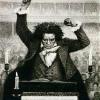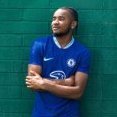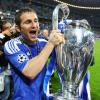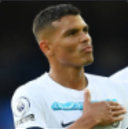The child returns home, to Manzanares, where everything started, from where he left with a 2-3 defeat against Celta looking for success. He went to Liverpool and now returns as a champion of europe with Chelsea, twice with Spain and world champion. Precocious in everything, today he can reach his 101 cap for his NT. He's back, but he's no longer the same.
Q: from that child in the Brunete tournament.. What's left?
A: values. What i've learned, I don't forget. I've been lucky to start young, though sometimes I think there are things that don't strike you by surprise when you are more mature. But nothing changes, you think you have lived everything and you haven't. In the end, you learn from everything.
Q: Do the scars hurt?
A: At first, life teaches you new things, you change the order of values, fit everything in a different way, maybe not as intensively as first. But for every scar and bad moment there are thousands of people that are there with you, social networks allow you to be aware of the people that follow and look up to you, they are with you and then you realize you're not alone... Though there is a moment when you tend to protect yourself.
I've realized that the player on the field must think as little as possible.
Q: you haven't been too permeable to critics?
A: I've learned to not let them affect me, to not put myself inside a cube and not listen, but to listen and learn. And look at yourself and know that only you can make yourself change, that the only one that can say "you're doing wrong and you have to fix it" is yourself.
Q: what have you done wrong?
A: a lot of things. Halfway through last seasons I turned away from the values I grew up with. I had teammates that didn't care if we won or lose, because they didn't play. I never wanted to be that way. One day I discovered that I was like them, that I didn't care wether we won or lose if I didn't play, that I wasn't a part of the group. I discovered that I wasn't happy because I turned away from what I wanted to be. In a dress-room group conscience, no, not group, friends. Can't be lost.
Q. But you lost even your identity on the field at Chelsea...
A: It's because the team required it. And i was different player in order to serve the team. It harmed my style but it was the only way of playing. I sometimes thought: " I'm going to run at the back of the defender and offer myself in space." but in 70 minutes I didn't touch a single ball. If I played in my place I wasn't in the game... ¿What do I do? It was so different to what I was accustomed to under Rafa that I wasn't comfortable and it showed! When we changed managers it was something more resembling to what I knew. All this had a good part, which is the lesson : It has made me a better player. Now I domain aspects of the game that I didn't care about before. You can be the Ayer the manager wants but you're not the player people expect you to be. I talked a lot with Steve Holland, the assistant, and we worked on that. In the end, the players give shape to the style of the team.
Q: What did you learn?
A: I went through another phase of growth and getting to know myself, of being conscious that in the end everything depends on you. I learned to be my biggest critic, to understand everyone else more and to accept the situation. una etapa más de madurar y de conocerme a mí, ser consciente de que al final todo depende de ti. I've always had the feeling that the team needed me to decide the games. It was simply accepting it: if when we won, nothing happened because I didn't play, it was a personal mistake.
Q: Did Luis (Aragonés) teach you that?
A: I think Luis tried too much to teach me things I already knew and we have talked about it. In the national team, later, I enjoyed it more (playing under him and as a person). I noticed that he insisted too much on things I was already doing good. Things of character, of values and of knowing how to behave that I, at that age, already knew and had clear because they taught me that in the youth team. When you grow as a player, you forget a lot of things, you leave them behind, and he reminded you of them all the time. That's the dressing-room I like, keeping respect and the team above everything else, but through work. Do you know Paulo Ferreira?
Q: yes, your partner at Chelsea?
A: He has won champions leagues, Leagues in Portugal, in England, he's won every title there is out there and he hasn't played a minute in years and he's a ten.(in Spanish "un diez" or a ten, means someone wonderful or great)
You can be comfortable or you can be playing the role you're supposed to play and he has taught me that, to say "this is what I'm supposed to do now". He trains as if there was no tomorrow, he goes to games always with a smile, always close to the younger ones... He taught me a lot.
Q: And you? Who do you want to be?
A: when I retire, the only thing that I care about is that no one can say that I've been a bad teammate, that i've been disrespectful, a big ego. Im sure that in 20 years time, if I go to Asturias, I will look for Juan [Mata], Santi [Cazorla], if I pass through Andalucía I'll go visit Sergio [Ramos] and Pepe [Reina] too. That's the beautiful thing. When football ends, some friends are lost.
Q: Is that Spain's secret?
A: without a shadow of doubt. We've lived very bas things before the good ones. In Spain, before Viena, they whistled at us. And all that remains. At the time it was a motivator. And we realized that we were as good or even better than all of them that came from the outside, that Xavi was magnificent... That we were capable of pulling it, that we were as good se everyone else. I always thought that sometimes some ayers that arrived in Spain were worse than what we had on the youth teams. Then we send youth players to England and the people over there rave about how good they are, then the people back here in Spain say: "How come Barça or Madrid didn't sign this kid?" Now spanish players have more liberty and less fear of working abroad.
Q: You left when you were very young. Would you do it again?
A: Of course I would! It's the best thing I've done. Not just the professional experience but also the personal one. You start seeing things in a different way, you expand your vision. Due to the country's situation, they're going to have to start going abroad. But in the end it will be an advantage. We can grow a lot. It happened with our grandfathers and our fathers. My father is "Gallego" (can't translate that) and now we have family in Argentina! It's the way it is now, if you have something ahead of you, you have to go out and grab it. But it's gonna take years for people to realize that and it's gonna be lost time. You have to be brave, and if you have to go, you go, you learn and you come back.
Q. You have to be brave with everything?
A: yes, everything, time teaches you to not hide your feelings, but in our case it's something different. Showing your feelings openly in and interview can be a big F**** up. You tend to protect your feelings in order to protect yourself and the rest. We you have to measure it a bit. In the end people remember only the two headlines they read. What they always look for is for the publication to be read thanks to the headlines. Headlines scare me a lot, because they are what remains. People almost never read the complete interview, only of they really like the interviewed person. Judging from a headline is very easy without caring about the explanation.
Q: coming back to Vicente Calderón, home?
A: I'm an Atlético Madrid supporter. In the end you support one club. Then, you can love a lot of other clubs for things that they gave you and what they've done for you. But the club you choose as a child is one. I learnt a lot at AtleticoY and I think it represents some useful values, though then you cans end up playing for another club, like Chelsea now, a much more settled club, with a higher social level. I still defend the values I learnt, not one of victimhood or inferiority, but one of fighting with what you are. A lot of times a failure can be turned to a success. Is there something more beautiful than defending your values 'till the end? Not of winning in any way, but your way?
There are teams in England and Italy that want to play like Barcelona.. They're not afraid of playing without a target man whereas it would've been crazy some years ago.
Q: you played with Simeone.. Are you surprised by what he has built?
A: I did, he was already a coach back then. I remember ons day he told me "the day I'm a manager, it's very simple, i wanna do this and this and I want a player that does it. If he doesn't, I'll play another one I don't care if he's 15, 20 or 40 years old" he had a very clear idea. He bugged the young ones a lot but he you noticed he was fond of us. His results have surprised me a lot and this is not even his team, they gave this team to him finished.
Q: How much is Falcao going to last in Manzanares?
A: you never know, it depends of the growth the team has. If the player grows above the team, you can't stop him from going because it isn't good for anyone.
Q: what's your relationship with Del Bosque?
A: Vicente is just like what you see, he has no other face, he has always treated everyone the same way. He has no personal dialogue besides the group, but when he has had something to say to me, he has.
Q: a forward in a team without forwards, how do you go with that?
R: it's just another option. When everyone knows you so well, you have to look for other options. Who knows if in some months we'll be playing without fullbacks [laughs] football evolves. Spain has earned the right to play as we want against whatever rival without fear.
Q: in that context, what does a forward does?
A: be patient, it's complicated. You need to keep a CB busy, it's a secondary role but it's the best for the team. It's a luxury playing for this team, sometimes you leave happy with the way you played even if you don't score because it's what the team needs. There are days where you think "man I've been great, I wish I could play like this always" and they come at you from everywhere criticizing you. Then there are days where you think you were slow, sluggish, wasteful in overall, but you bagged a brace and people applauds you. I've learnt to live with that.
Q; Vilanova says nothing ever happens in football.
A: agreed, you have personal recognition and what you've done. Managers like Benitez and Cesar Fernando taught me to think like a coach. But in the end, I've realized that the player needs to think as less as possible, we have to act. When you see the team as a system you think of that more than of what you have to do.
A: you left Liverpool in a bad way but you always talk about that phase as something wonderful, why?
A: I owe a lot to liverpool, the people, Benitez, his staff, the city. Its a fundamental part of my life. Even if they don't remember me the same way I do. Time will change it. Moving to Liverpool was the perfect decision at the time. When the news about Hillsborough came out the other day I felt it, I got emotional, I've lived it, I know what the people has gone through, I've seen them cry, I made it mine. It comes late but those are the things that playing for Liverpool leaves you.
I decided to leave because I needed a step forward. It wasn't the best way, but it also wasn't the way they it was sold. Some day the truth will be known. In football terms I wasn't doing anything over there, I needed a new project. It's what we talked about, growth.
Q: And London?
A: In London I go to rock & roll clubs and no one knows me!. It's fantastic! [laughs]
 lewy got a reaction from goose in Torres - The "Groundhog Day" Threadthats a stupid comment, even the best footballers dont do anything like risking their lives, footballers are paid that much because people are willing to pay that much, it's not his fault he's sh*t, if he can get loads of money from being sh*t then thats abrhamovics mistake not his
lewy got a reaction from goose in Torres - The "Groundhog Day" Threadthats a stupid comment, even the best footballers dont do anything like risking their lives, footballers are paid that much because people are willing to pay that much, it's not his fault he's sh*t, if he can get loads of money from being sh*t then thats abrhamovics mistake not his lewy got a reaction from chelseablueboy in Torres - The "Groundhog Day" Threadthats a stupid comment, even the best footballers dont do anything like risking their lives, footballers are paid that much because people are willing to pay that much, it's not his fault he's sh*t, if he can get loads of money from being sh*t then thats abrhamovics mistake not his
lewy got a reaction from chelseablueboy in Torres - The "Groundhog Day" Threadthats a stupid comment, even the best footballers dont do anything like risking their lives, footballers are paid that much because people are willing to pay that much, it's not his fault he's sh*t, if he can get loads of money from being sh*t then thats abrhamovics mistake not his lewy got a reaction from Amputechture in Torres - The "Groundhog Day" Threadthats a stupid comment, even the best footballers dont do anything like risking their lives, footballers are paid that much because people are willing to pay that much, it's not his fault he's sh*t, if he can get loads of money from being sh*t then thats abrhamovics mistake not his
lewy got a reaction from Amputechture in Torres - The "Groundhog Day" Threadthats a stupid comment, even the best footballers dont do anything like risking their lives, footballers are paid that much because people are willing to pay that much, it's not his fault he's sh*t, if he can get loads of money from being sh*t then thats abrhamovics mistake not his lewy reacted to moi in Torres - The "Groundhog Day" ThreadOh no, please don't Lewy! There are situations where swearing is obligatory! And you seem to be a good judge of that...
lewy reacted to moi in Torres - The "Groundhog Day" ThreadOh no, please don't Lewy! There are situations where swearing is obligatory! And you seem to be a good judge of that... lewy got a reaction from 1905. in Torres - The "Groundhog Day" Threadforgive him for what? being sh*t? are you asking if people would forgive his sh*tness if he stopped being sh*t?
lewy got a reaction from 1905. in Torres - The "Groundhog Day" Threadforgive him for what? being sh*t? are you asking if people would forgive his sh*tness if he stopped being sh*t? lewy got a reaction from moi in Torres - The "Groundhog Day" Threadforgive him for what? being sh*t? are you asking if people would forgive his sh*tness if he stopped being sh*t?
lewy got a reaction from moi in Torres - The "Groundhog Day" Threadforgive him for what? being sh*t? are you asking if people would forgive his sh*tness if he stopped being sh*t? lewy got a reaction from moi in Torres - The "Groundhog Day" Threadthats a stupid comment, even the best footballers dont do anything like risking their lives, footballers are paid that much because people are willing to pay that much, it's not his fault he's sh*t, if he can get loads of money from being sh*t then thats abrhamovics mistake not his
lewy got a reaction from moi in Torres - The "Groundhog Day" Threadthats a stupid comment, even the best footballers dont do anything like risking their lives, footballers are paid that much because people are willing to pay that much, it's not his fault he's sh*t, if he can get loads of money from being sh*t then thats abrhamovics mistake not his lewy got a reaction from ace in Torres - The "Groundhog Day" Threadforgive him for what? being sh*t? are you asking if people would forgive his sh*tness if he stopped being sh*t?
lewy got a reaction from ace in Torres - The "Groundhog Day" Threadforgive him for what? being sh*t? are you asking if people would forgive his sh*tness if he stopped being sh*t? lewy got a reaction from Scott Harris in Torres - The "Groundhog Day" Threadthats a stupid comment, even the best footballers dont do anything like risking their lives, footballers are paid that much because people are willing to pay that much, it's not his fault he's sh*t, if he can get loads of money from being sh*t then thats abrhamovics mistake not his
lewy got a reaction from Scott Harris in Torres - The "Groundhog Day" Threadthats a stupid comment, even the best footballers dont do anything like risking their lives, footballers are paid that much because people are willing to pay that much, it's not his fault he's sh*t, if he can get loads of money from being sh*t then thats abrhamovics mistake not his lewy got a reaction from mactheknife in Torres - The "Groundhog Day" Threadthats a stupid comment, even the best footballers dont do anything like risking their lives, footballers are paid that much because people are willing to pay that much, it's not his fault he's sh*t, if he can get loads of money from being sh*t then thats abrhamovics mistake not his
lewy got a reaction from mactheknife in Torres - The "Groundhog Day" Threadthats a stupid comment, even the best footballers dont do anything like risking their lives, footballers are paid that much because people are willing to pay that much, it's not his fault he's sh*t, if he can get loads of money from being sh*t then thats abrhamovics mistake not his lewy reacted to Castiel in The Chronicles of Brendan 'Cringe Worthy' RodgersSaw these on Bluemoon.
lewy reacted to Castiel in The Chronicles of Brendan 'Cringe Worthy' RodgersSaw these on Bluemoon. lewy reacted to DoubleHelix in The Chronicles of Brendan 'Cringe Worthy' RodgersI could go on and on about Brent's lines... I happened to catch The Office by a friend studying in England at LSE. He knew I was a big Python/Fawlty Towers/ Doug Adams fan and sent me the DVD after the first season. To this day, I can watch that show and no matter how sh*tty of a mood I am in, I need to hear about five minutes of dialogue and I am off to do my day. One of my favorites (and there are many) is:
lewy reacted to DoubleHelix in The Chronicles of Brendan 'Cringe Worthy' RodgersI could go on and on about Brent's lines... I happened to catch The Office by a friend studying in England at LSE. He knew I was a big Python/Fawlty Towers/ Doug Adams fan and sent me the DVD after the first season. To this day, I can watch that show and no matter how sh*tty of a mood I am in, I need to hear about five minutes of dialogue and I am off to do my day. One of my favorites (and there are many) is: lewy reacted to ForeverCarefree in Mario PasalicI'm sure he'll enjoy his year on loan to Vitesse.
lewy reacted to ForeverCarefree in Mario PasalicI'm sure he'll enjoy his year on loan to Vitesse. lewy reacted to Beerqueen in The next bands you are going to see?Oh my f**king god!!!! Have got tickets for the Who in December!!! So excited!
lewy reacted to Beerqueen in The next bands you are going to see?Oh my f**king god!!!! Have got tickets for the Who in December!!! So excited! lewy reacted to Northern_Star in Torres - The "Groundhog Day" ThreadSince joining Chelsea in 2011, Fernando Torres has been in outstanding goal scoring form.
lewy reacted to Northern_Star in Torres - The "Groundhog Day" ThreadSince joining Chelsea in 2011, Fernando Torres has been in outstanding goal scoring form. lewy reacted to KosovoBlue in Torres - The "Groundhog Day" ThreadJust.. WOW
lewy reacted to KosovoBlue in Torres - The "Groundhog Day" ThreadJust.. WOW lewy reacted to Gabriel25 in Torres - The "Groundhog Day" ThreadThe child returns home, to Manzanares, where everything started, from where he left with a 2-3 defeat against Celta looking for success. He went to Liverpool and now returns as a champion of europe with Chelsea, twice with Spain and world champion. Precocious in everything, today he can reach his 101 cap for his NT. He's back, but he's no longer the same.
lewy reacted to Gabriel25 in Torres - The "Groundhog Day" ThreadThe child returns home, to Manzanares, where everything started, from where he left with a 2-3 defeat against Celta looking for success. He went to Liverpool and now returns as a champion of europe with Chelsea, twice with Spain and world champion. Precocious in everything, today he can reach his 101 cap for his NT. He's back, but he's no longer the same.











